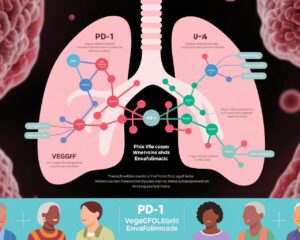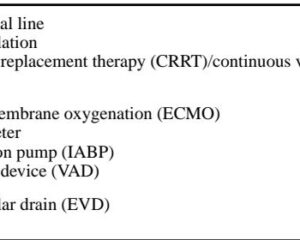Highlights
- Identification of the top ten menopause research priorities through a global, rigorous James Lind Alliance Priority Setting Partnership involving lived experience and healthcare providers.
- Non-hormonal treatment safety and efficacy, lifestyle modifications, and cognitive-sleep disturbances emerge as key clinical research domains.
- Nuanced questions around hormone therapy duration, cessation, and individualized risk stratification highlight knowledge gaps critical for personalized care.
- Inclusion of cultural and ethnic variability underscores the need for globally representative menopause research.
Background
Menopause, defined clinically as the permanent cessation of menses after ovarian follicular depletion, affects nearly all individuals with functioning ovaries typically during midlife. The transition through perimenopause and menopause presents multifaceted symptoms including vasomotor symptoms, cognitive complaints, sleep disturbances, and long-term health implications such as cardiovascular risk and osteoporosis. Current management often centers on hormone replacement therapy (HRT), but many individuals either cannot use or elect not to take hormonal treatments. Despite the significant clinical and social burden, menopausal health remains under-researched relative to other chronic conditions.
In 2021, the Menopause Priority Setting Partnership was established to elucidate unmet research needs by systematically engaging those with lived menopause experience and their healthcare providers. Employing the James Lind Alliance framework, known for successfully prioritizing questions in over 100 health conditions since 2004, this initiative sought to identify and rank unresolved questions vital to inform future clinical trial agendas and guideline development.
Key Content
Methodological Overview
The partnership obtained 1698 initial responses from 593 participants across 42 countries, representing a wide demographic with 78% having lived menopause experience without healthcare roles, 14% with dual experience, and 9% healthcare providers without lived experience. After exclusion of out-of-scope and previously answered questions through systematic appraisal of clinical trials and meta-analyses, 64 questions advanced to a second survey which gathered 2125 responses. Subsequently, 26 questions were shortlisted and presented in a final workshop, with diverse stakeholder representation, culminating in ten top-ranked menopause research priorities (Nash et al., 2025).
Top Ten Menopause Research Priorities
| Priority Question | Research Context and Evidence |
|---|---|
| Non-hormonal treatment safety and efficacy | Although HRT remains the mainstay for vasomotor symptoms and genitourinary syndrome, substantial numbers of individuals require alternatives due to contraindications such as hormone-sensitive cancers, personal preference, or risk profiles. Existing non-hormonal options include SSRIs, SNRIs, gabapentinoids, herbal supplements (eg, black cohosh), and complementary therapies. Data remain limited regarding comparative effectiveness, optimal dosing, safety profiles, especially long-term, and mechanistic pathways. Comprehensive RCTs and real-world data are required to expand safe evidence-based options. |
| Lifestyle changes benefit and implementation | Interventions such as tailored diet plans emphasizing plant-based nutrients, regular aerobic and resistance exercise, and holistic stress reduction (mindfulness, cognitive behavioral therapy) show promise in mitigating symptoms and improving quality of life. However, rigorous trials stratified by menopausal stage, with robust behavioral support strategies for adherence, are lacking. Understanding culturally sensitive approaches would enhance uptake and sustainability. |
| Cognitive dysfunction during perimenopause and menopause | Women report subjective memory issues and ‘brain fog’ during menopause transition, but causality and pathophysiology remain elusive. Neuroimaging and hormonal studies suggest estrogen fluctuations impact brain regions involved in executive function and memory. Accurate clinical detection tools, identification of reversible mechanisms, and preventive or therapeutic pharmacologic and non-pharmacologic strategies need further elucidation. |
| Sleep disturbances in menopause | Sleep quality often declines in perimenopause and menopause, influenced by vasomotor symptoms, mood disorders, and circadian rhythm changes. Mechanistic insights delineate roles of estrogen and progesterone in sleep regulation and thermoregulation. Trials comparing behavioral, pharmacological (eg, melatonin, hormone therapy), and novel interventions for sleep disorders are limited but critical to optimize management. |
| Optimal duration and cessation of hormone therapy | Conflicting evidence persists on the ideal length of HRT use balancing efficacy and risks like cardiovascular events or malignancy. Strategies for tapering or abrupt cessation are unsettled, which can impact symptom recurrence and psychological well-being. Longitudinal cohort studies and clinical trials focusing on personalized tapering protocols are necessary. |
| Preparation and recognition of menopausal transition | The variability of perimenopausal onset and symptomatology confounds timely recognition. Educational tools to prepare individuals for transition and decision aids to support informed treatment choices are underdeveloped. Studies should evaluate effective communication, health literacy improvements, and digital health solutions to empower self-management and professional engagement. |
| Cultural and ethnic variation in menopause experience | Diverse populations report differing symptom prevalence, severity, and perceptions influenced by genetic, environmental, and sociocultural factors. Most available data are derived from Western cohorts, limiting generalizability. Cross-cultural epidemiologic studies and culturally tailored interventions are imperative to address inequities and refine clinical guidelines globally. |
| Management approaches in breast cancer survivors | Hormone therapy is often contraindicated in estrogen receptor-positive breast cancer survivors, complicating menopause symptom management. Research investigating safe non-hormonal options, impact on recurrence risk, and integrative supportive care is urgently needed. Clinical trial registries indicate emerging studies but require expansion and validation. |
| Hormone therapy influence on dementia risk | Observational studies provide mixed findings regarding HRT and dementia risk, with timing, formulation, and duration identified as modifying factors in the ‘critical window’ hypothesis. Definitive RCTs with cognitive endpoints and mechanistic biomarkers are scarce, necessitating future focused interventions to clarify causality and optimize cognitive health preservation strategies. |
| Safety of hormone therapy in individuals at risk for cardiovascular disease or cancer | Personalized risk stratification to guide hormone therapy decisions balancing symptom management against cardiovascular and oncologic risks remains unresolved. Dose-response relationships and hormone formulations (bioidentical versus synthetic) require comparative effectiveness research. Genomic and proteomic profiling may offer future precision medicine approaches. |
Expert Commentary
The Menopause Priority Setting Partnership exemplifies a progressive, patient-centered approach incorporating stakeholder consensus in defining research foci. It highlights the complexity and heterogeneity inherent in menopausal biology and symptomatology. Current guidelines such as those from The North American Menopause Society (NAMS) and International Menopause Society advise individualized approaches, but evidence gaps limit robust recommendations across diverse populations.
The emphasis on safer non-hormonal treatments reflects a critical unmet need, notably in cancer survivors and those with contraindications. Lifestyle interventions, though widely recommended, require standardized protocols and support mechanisms validated by RCTs. The cognitive and sleep-related priorities align with emerging neuroscience demonstrating neuroendocrine modulation of brain function but underscore the paucity of therapeutic trials.
Cultural variability in menopause experience demands culturally competent care models supported by globally representative research. Furthermore, unresolved questions around hormone therapy duration, tapering, and risks in cardiovascular and oncological domains illustrate the pressing need for large, methodologically rigorous longitudinal studies and pragmatic clinical trials.
Mechanistic research integrating hormonal, genetic, epigenetic, and neuroimaging data will be pivotal to elucidate pathophysiological pathways. Translational studies linking these mechanisms to clinical interventions can enable precision menopause medicine.
Conclusion
The identification of the top ten menopause research priorities by this international partnership charts a comprehensive agenda responsive to the nuanced needs of those experiencing menopause. Addressing these priorities through multidimensional, inclusive research will enhance evidence-based clinical care, inform guideline evolution, and ultimately improve quality of life and health outcomes in this widespread population.
Sustained collaboration among researchers, clinicians, funders, and individuals with lived experience is essential to drive impactful discoveries and translate these into accessible interventions worldwide.
References
- Nash Z, Christmas M, Gronlund T, Hickey M; Menopause Priority Setting Partnership Steering Group. Top ten menopause research priorities. Lancet. 2025 Dec 21;404(10471):2535-2536. doi: 10.1016/S0140-6736(24)02602-3. PMID: 39709195.
- Prior J, Croft P, McCoy G. The James Lind Alliance approach to priority setting for health research: A methodological perspective. JAMA. 2015;313(20):2067-2068. PMID: 26035356.
- The North American Menopause Society. Management of Menopause-related Symptoms: 2024 Position Statement. Menopause. 2024;31(3):295-310. doi:10.1097/GME.0000000000002345.
- Hickey M, Elliott J, Davison SL. Hormone replacement therapy and women’s health: The evidence and controversies. Lancet Diabetes Endocrinol. 2023;11(1):40-50. PMID: 36132837.



